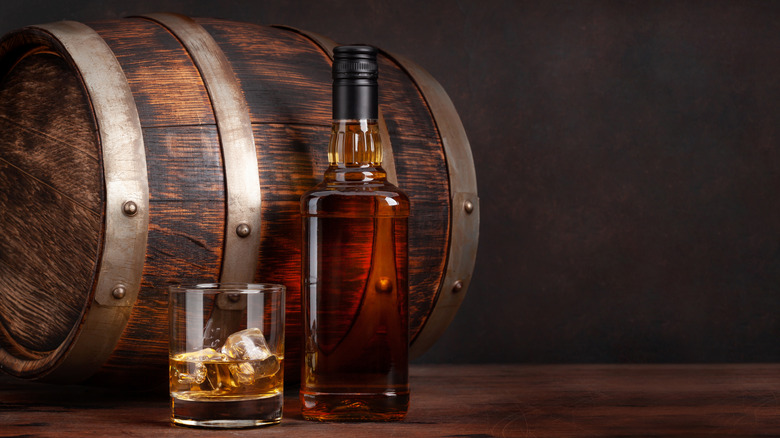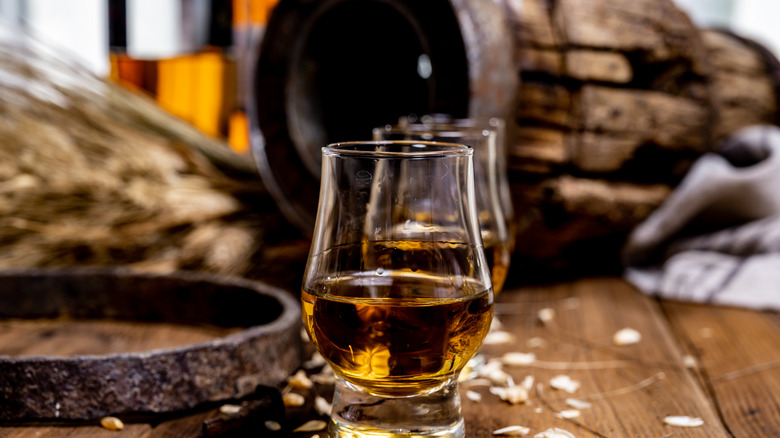What Does 'Angels' Share' Mean In Connection To Whiskey
Even non-whiskey drinkers have heard the term "angels' share" bandied about like it's common knowledge. In a nutshell, the angels' share is that bit of the whiskey that evaporates through the pores of the oak barrels as the spirit ages. The angels' share accounts for about a 2% loss of liquid every year. Putting that into perspective, larger distilleries like Glenfiddich, which stores millions of liters of whiskey, will lose as much as 2.5 million liters of whiskey per year, and up to 35 million over a 15-year aging period (via YouTube).
Aside from this loss, the angels' share actually plays an important role in the maturation process of a whiskey. Everything from location and climate to wood type and airflow, to how long the spirit will be aged all work towards determining just how much angels' share will be lost and how it will affect the outcome of a certain whiskey.
What the 'angels' give
While it is hard not to think of the staggering numbers of lost liters, the simple fact is that the angels' share is inevitable. But while the medieval Irish and Scots thought that the missing liquid was an offering to the angels, there is something far more scientific going on, per Oak & Eden. Humidity and temperature matter greatly when taking the angels' share into account and utilizing the process to the spirit's advantage.
One of the reasons Kentucky bourbon can be so strong and high in alcohol is because of the higher heat and humidity levels indicative of the state. Heat will cause the liquid to evaporate faster, quickening the aging process. Humidity, however, will draw the water out of the spirit before the alcohol, thereby strengthening the bourbon and giving it a higher ABV. Conversely, the cooler climates of Speyside in Scotland will evaporate the alcohol before the water, leading to a scotch with lower alcohol content, though the unique flavors are retained (via The Glenlivet).
The cask size also matters when it comes to evaporation speed. According to Travel Distilled, alcohol aged in smaller casks will have more contact with the wood, thereby interacting closely with the pores and evaporating faster. This technique is intentionally used by some distilleries that want to get their whiskey to market quickly. Plus, by speeding up maturation, the angels get their share sooner. It's a win-win.

